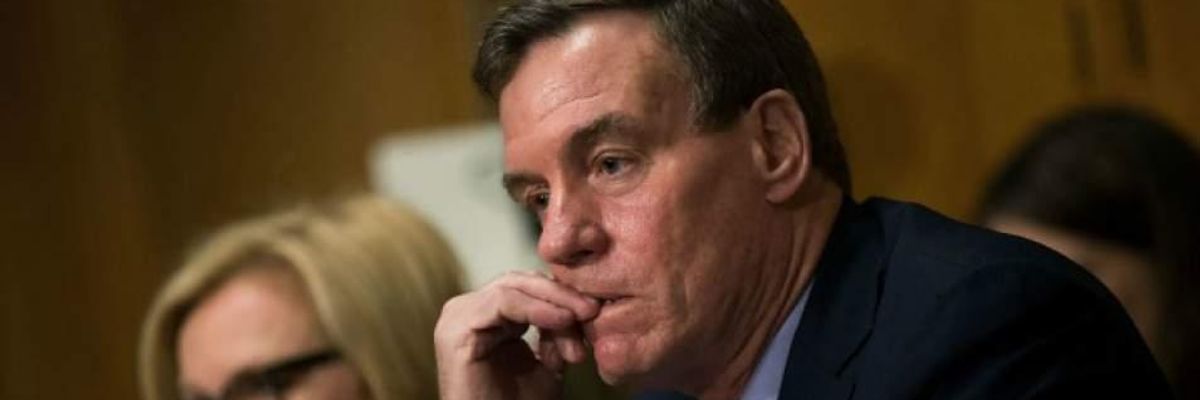Providing further evidence that the bank deregulation bill currently sailing through the Senate--with the essential help of 12 Democrats and Sen. Angus King (I-Maine)--is more about enriching large financial institutions than helping community banks, the Congressional Budget Office (CBO) estimated in a report unveiled late Monday that the bipartisan measure would exempt big banks from strict regulations and significantly increase the likelihood of future taxpayer bailouts.
"Any Democrat voting to advance this bill ought to just retire and start working directly as a lobbyist for the big banks."
--Kurt Walters, Rootstrikers
"A major feature of the bill is exempting about two dozen financial companies with assets between $50 billion and $250 billion from the highest levels of regulatory scrutiny from the Federal Reserve," notes the Washington Post's Jeff Stein, who first reported on the CBO's findings.
According to the CBO, such exemptions would give large institutions--including so-called "too big to fail" banks--more freedom to engage in the kind of risky behavior that led to the 2008 financial crash, thus making them more likely to collapse again.
"This banking bill is a disaster," Sen. Bernie Sanders (I-Vt.) said in a statement responding to the CBO's findings. "The Wall Street crash of 2008 showed the American people how fraudulent many of these large banks are. The last thing we should be doing is deregulating them. Why would any member of Congress vote to move us closer to another taxpayer bailout of large financial institutions?"
Sen. Sherrod Brown (D-Ohio) also seized upon the CBO's report on Monday as confirmation of what the bill's opponents have been saying for months.
The Economic Growth, Regulatory Relief, and Consumer Protection Act--or, as critics call it, the "Bank Lobbyist Act"--was introduced by Sen. Mike Crapo (R-Idaho) last November, and currently boasts 12 Democratic co-sponsors, in addition to Sen. Angus King (I-Maine): Doug Jones (Ala.), Joe Donnelly (Ind.), Heidi Heitkamp (N.D.), Jon Tester (Mont.), Mark Warner (Va.), Claire McCaskill (Mo.), Joe Manchin (W.Va.), Tim Kaine (Va.), Gary Peters (Mich.), Michael Bennet (Colo.), Chris Coons (Del.), and Tom Carper (Del.).
With the legislation scheduled for a procedural vote on Tuesday, Kurt Walters, campaign director at the advocacy group Rootstrikers, suggested in a statement on Monday that "any Democrat voting to advance this bill ought to just retire and start working directly as a lobbyist for the big banks."
"The charade is over," Walters added. "The CBO's report just destroyed any case that this bill is 'community banking' legislation. A neutral arbiter just confirmed that this bill would increase the risk of future bank bailouts and gave even odds that it would let Wall Street giants CitiBank and JPMorgan pile on more risk. In what universe does this make sense as policy? In what universe is this what voters are clamoring for?"

